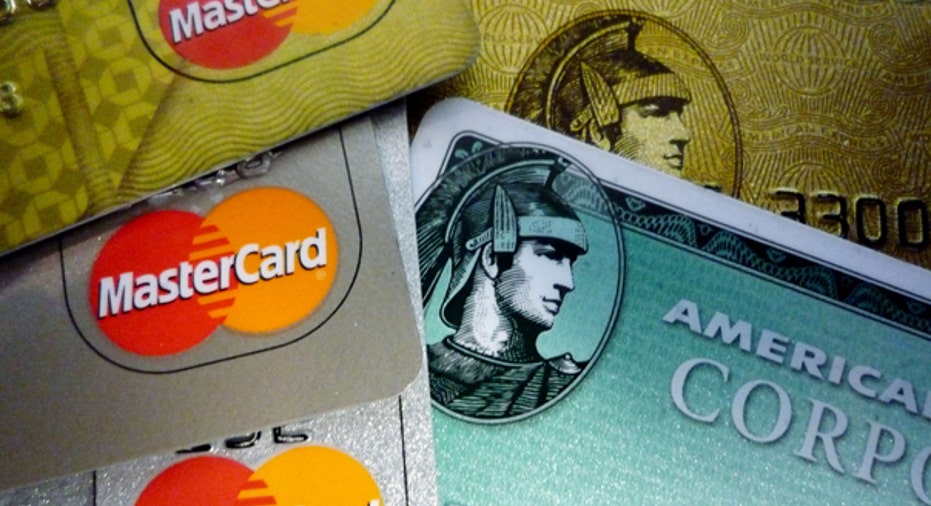Five Common Credit Report Mistakes College Students Should Avoid

Making a mistake while taking a mid-term or a typo in a research paper is easy enough to erase and fix, but mistakes on a credit history can have long-term consequences for college students if they go unresolved.
The CARD Act made it more difficult for those under age 18 to obtain a credit card, but many college students still have one and are financially responsible for the balance and how it impacts their credit score.
“I know people who haven’t checked their credit report in years because some people are actually afraid to,” says Laura Creamer, financial education specialist for CredAbility.
“You need to check it at least once every 12 months--sometimes you can be surprised by the information that’s on there and you want to catch it as soon as possible.”
Here are the top five most common credit card mistakes and how college students and grads can fix them.
Errors in personal information. Creamer explains that oftentimes credit reports contain simple, clerical errors, especially if a student has a common last name.
Other frequent errors include having the wrong address or Social Security number. These mistakes may seem trivial, but they can cause problems down the road.
“Let’s say that someone goes into a store and fills out a credit application--a lot of times they can’t really read what it actually says,” she says. ‘The creditor that’s doing the data entry sometimes puts in the name incorrectly and looks like someone else’s name or the address is spelled incorrectly.”
Inaccurate account information. Just like verifying personal information, Creamer recommends students verify that the information about their accounts is accurate, including the length of time the account has been opened, the type of account, the credit limits and payment history.
Incorrect balances on accounts. Because the balances on an account are often used to determine if a consumer is a good candidate for future credit lines, Creamer recommends having documented proof that all the figures are correct.
“Keeping that documentation in a very simple filing system is what we suggest,” she says. “This is especially important in the case of identity theft, because it’s going to require a police report, an affidavit, and other documentation that you have to submit because you have to prove that wasn’t you.”
Late payments, collections and charge-offs. Beverly Harzog, credit expert at Credit.com, stresses the need to keep financial records when paying off judgments, such as a medical bill that was paid on time, but is showing up as a late payment. “Any time you get into a legal situation with a collection agency, a bankruptcy, anything that had a negative impact on credit report, you want to keep documentation on that,” she says. “If you don’t have it, you’re going to have to go through some research to collect the material.”
Red flag accounts. Credit card account holders should review their list of accounts to make sure that there isn’t a red flag on the report, recommends Harzog. It is possible to have a harmless mix up if a family member or someone with a similar name or address opens a new account, but if it is a fraudulent case, it’s better to know right away. “Sometimes at the beginning of fraud, somebody will use your information so you might even see a hard inquiry on your report, even if a new account hasn’t been established yet,” she says. “It’s a good idea to watch for those things, especially if you didn’t ask that lender to check your score.”
How to Fix Errors
Errors on a student or graduate’s credit report can reduce their credit score, whether it’s an honest mistake or credit card fraud—students should review their scores quarterly with a free credit report from each bureau (Equifax, Experian, and TransUnion) at AnnualCreditReport.com.
“I suggest spreading it out--get one and then wait another four months to get the next one,” says Harzog. “The credit bureaus all have varying information because not everybody reports to all of them so it’s not going to be exactly the same. If you spread it out throughout the year, you at least have a better chance of catching an error or credit card fraud or identity theft.”
In order to dispute an error, card holders need to write a letter to the credit bureau in question as well as the creditor, including copies of documents for proof and even a copy of the report with the disputed information circled.
According to the FTC, it’s best to send the letter by certified mail, “return receipt requested,” for documenting what the credit reporting company received and keep copies of your dispute letter and enclosures. In the case of identity theft, victims will have to go through additional steps--visit the FTC’s site for more information.



















